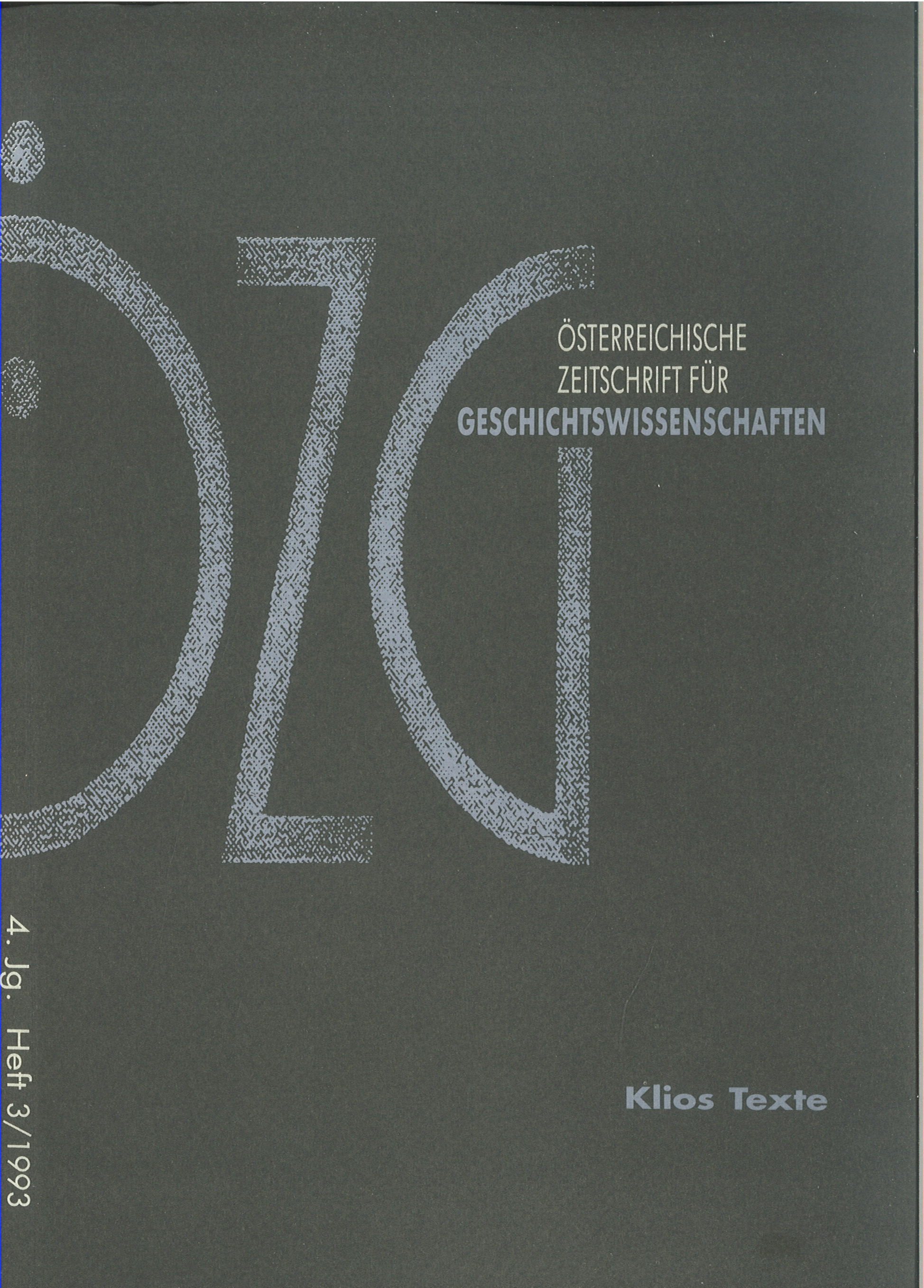For a Critical Theory of (Post-)Modernism?
DOI:
https://doi.org/10.25365/oezg-1993-4-3-6Abstract
At the outset the plausibility of Postmodernism as a seismographical metaphorisation of crisis-like problem-situations is being reconstructed by means of social contextualisation. The anti-Enlightenment image of Postmodernism in this context is due to its interpretative blending of the Enlightenment with the subject substitution of social planerism. In the face of a progressive continuity of history postmodernist historiography maintains die Gleichzeitigkeit des Ungleichzeitigen. By comparing Jürgen Habermas' theory of communication with Hayden White's tropology, functional equivalents are finally being established, which are of crucial importance to all problems concerning the theoretical anchoring of critical historical sciences. By realising a joint criticism-of-rationalism and a sociology-of-knowledge argumentation postmodernist philosophy of history thus merges with an image of Critical Theory shifting its terrain.







